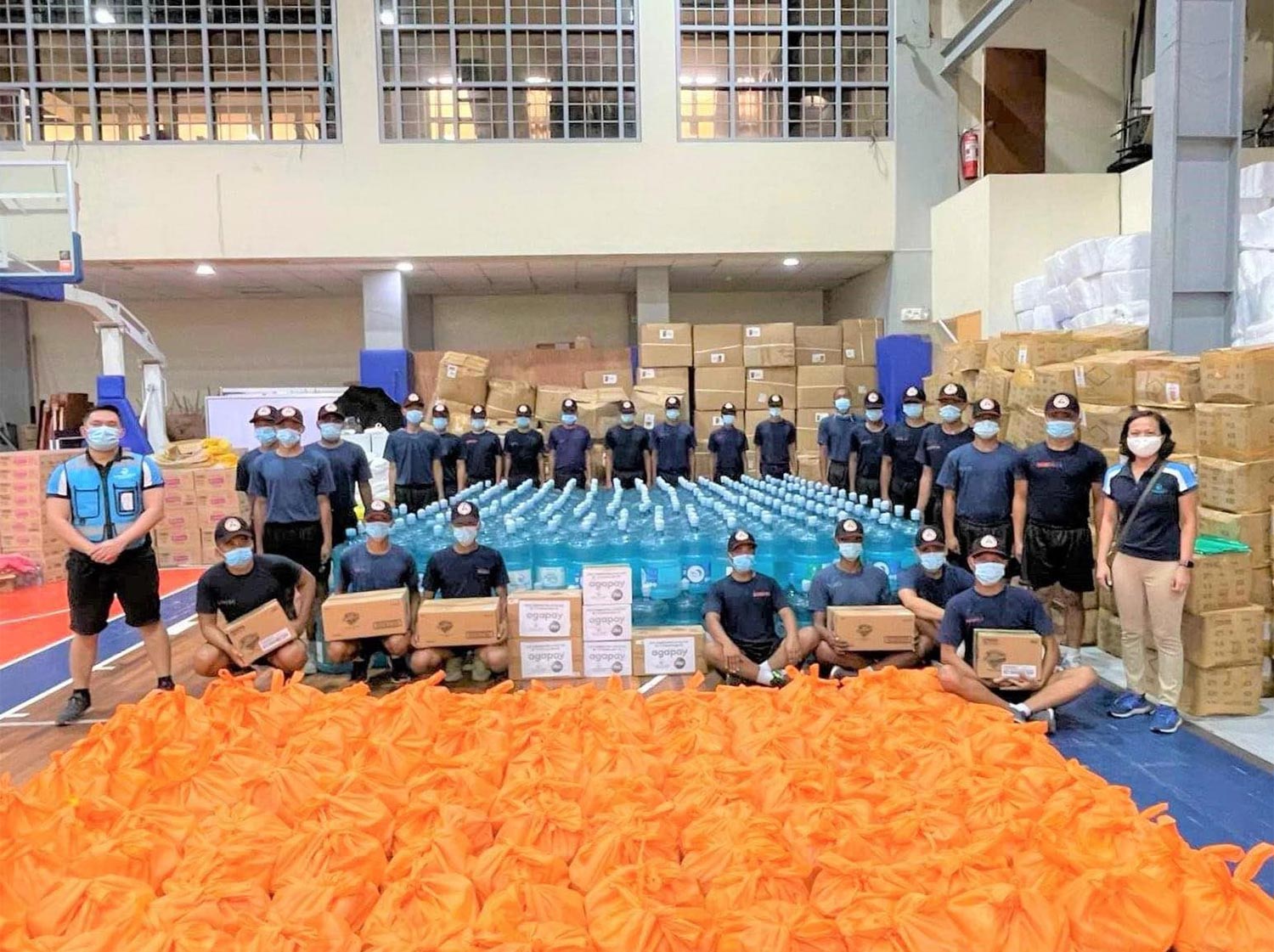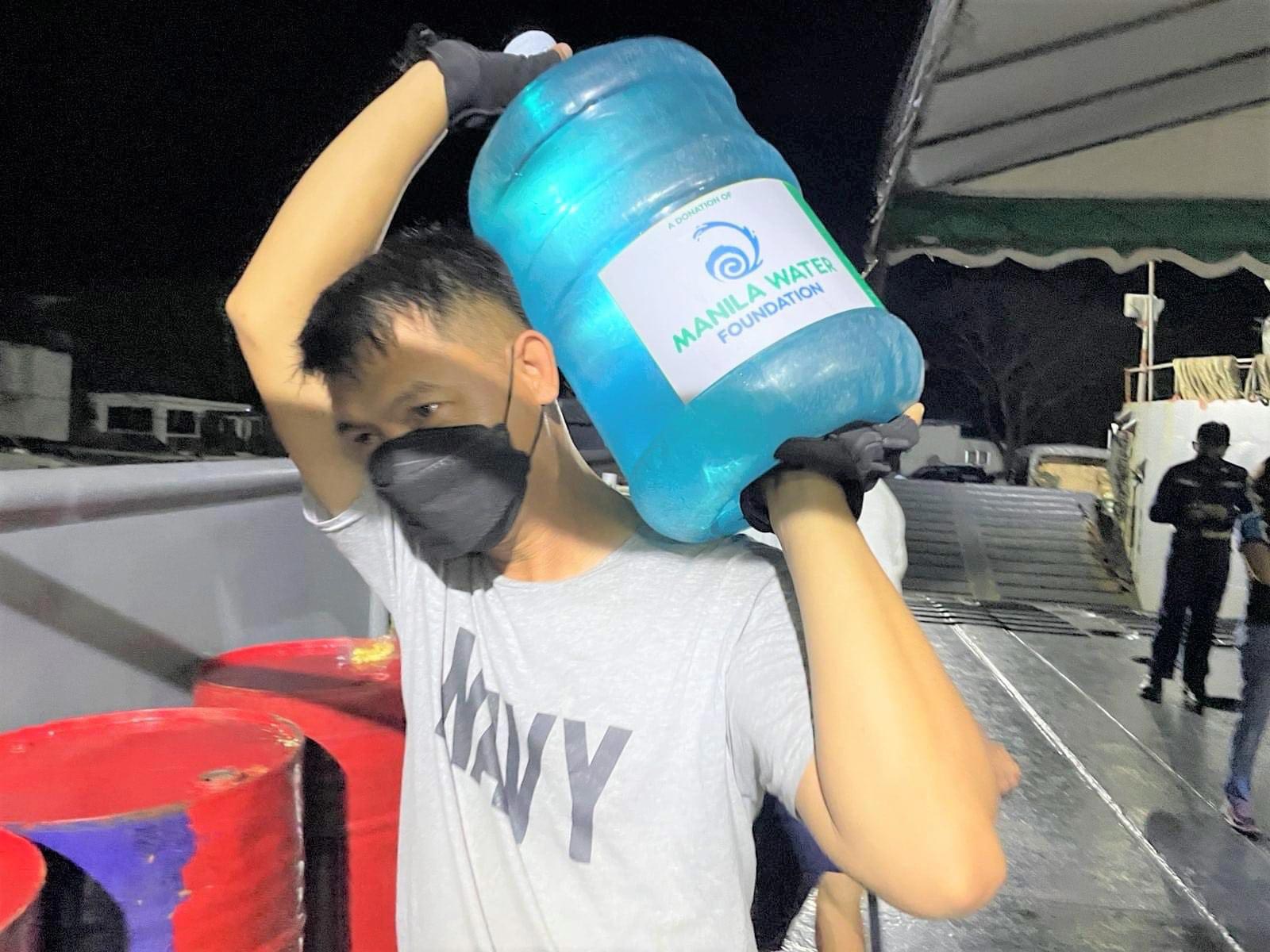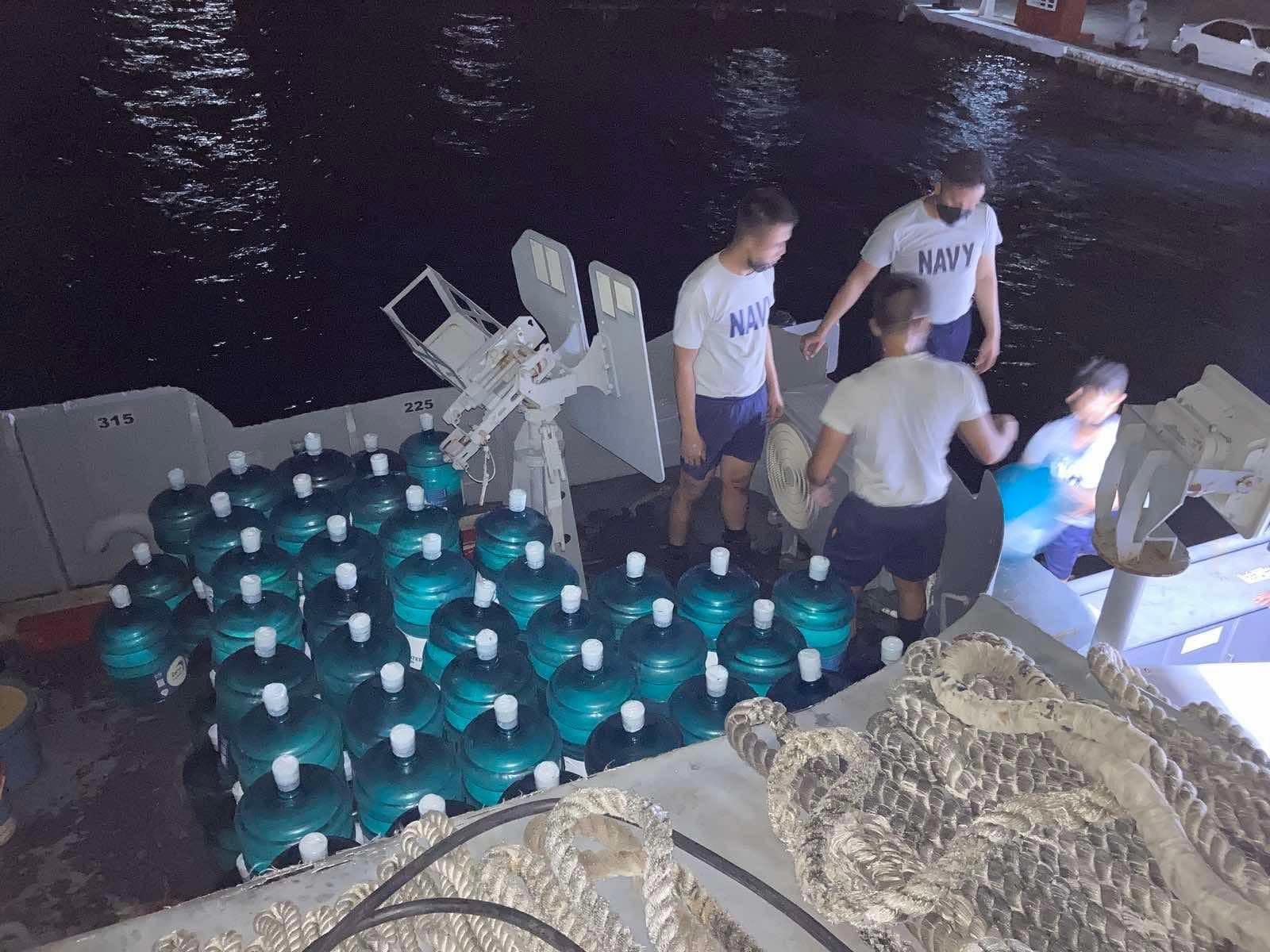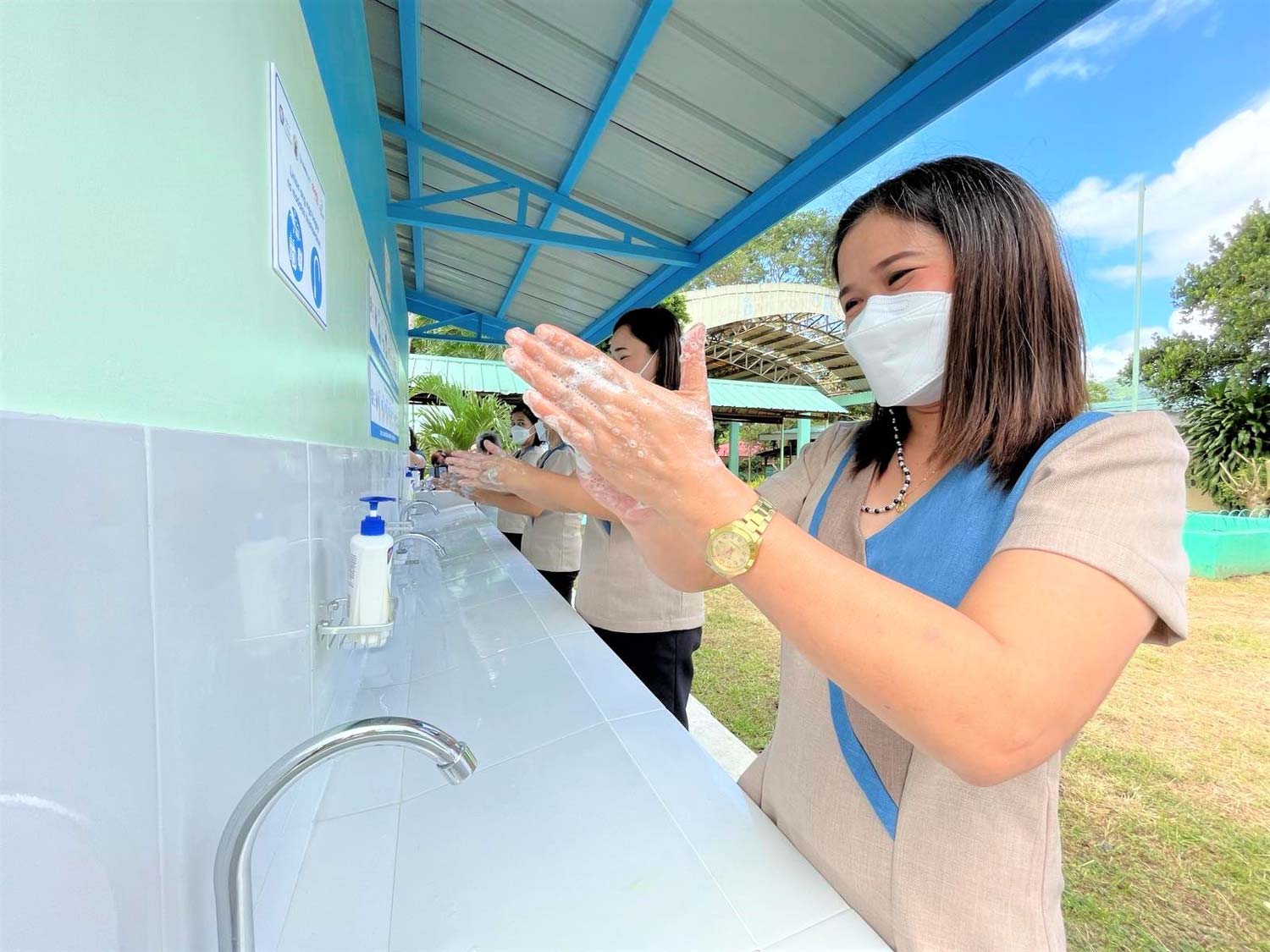
Manila Water Foundation worked with like-minded organizations to bring water access, sanitation, and hygiene (WASH) to more institutions, communities, and families.
Sustaining the momentum it has built amid the pandemic, Manila Water Foundation forged on to pursue its vision of more communities having clean, safe, and potable water supply and safely managed sanitation facilities. With the demand for water access, sanitation, and hygiene (WASH) interventions more evident now than ever, Manila Water Foundation worked together with organizations with shared advocacies to reach more institutions, communities, and Filipino families. In 2021, Manila Water Foundation was able to reach more than 1.2 million individuals collectively. The programs of the MWF carried on contributing to various UN Sustainable Development Goals (SDG), supporting Goal 6: Clean Water and Sanitation. Aside from this, MWF anchors its programs to Goal 1: No Poverty, Goal 3: Good Health and Well-Being, Goal 4: Quality Education, Goal 14: Life Below Water, Goal 11: Building Sustainable Cities and Communities, and Goal 17: Partnership for the Goals. In summary, MWF has now reached out to 5,607,024 individuals nationwide since 2005 with the combined contributions of all its major programs and its WASH in Pandemic initiatives.
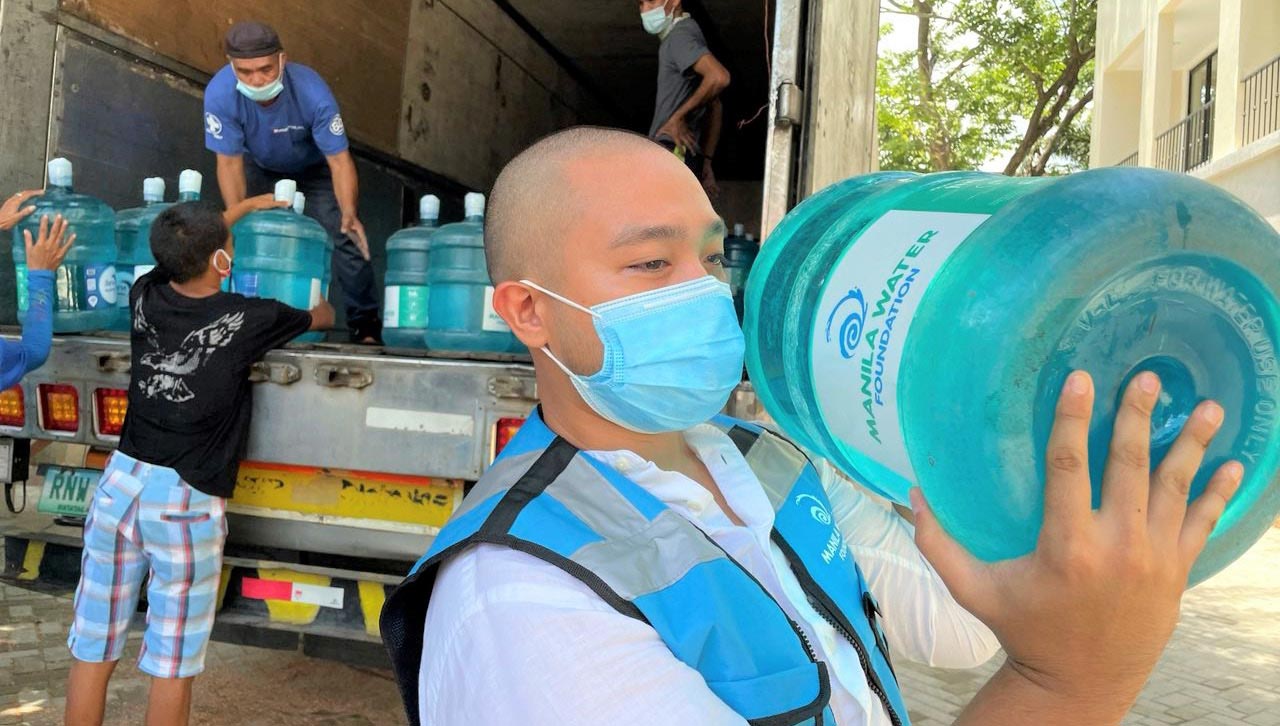
From the seismic activities of Taal Volcano in January to Typhoon Odette in the latter part of the year, Manila Water Foundation continued to support communities especially in times of emergencies amid the pandemic.
2021 Achievements of the WASH in Pandemic Project
Since 2020, Manila Water Foundation has been supporting the health and safety protocols directed by the national government through its WASH in Pandemic initiatives. It aimed to provide multi-faucet hand hygiene facilities, supplies, and education to communities and institutions as precautionary measures to address the threat of COVID-19. The WASH in Pandemic project was divided into three subcategories: WASH in Pandemic for Communities, WASH in Pandemic for Institutions, and WASH in Pandemic for Emergencies.
In partnership with the Department of Health and P&G Safeguard Philippines, Manila Water Foundation's WASH in Pandemic for Communities program built 14 hygiene facilities and provided 1,300 hygiene kits for public markets, health stations, and community centers.
Meanwhile, the WASH in Pandemic for Institutions paved the way to establish effective relationships with like-minded organizations to bring the necessary interventions to a targeted sector. Through its participation at the League of Corporate Foundations (LCF), Manila Water Foundation led the implementation of LCFWinS: Lingap Eskwela sa Pandemya, LCF's call for collective impact among its member corporations and corporate foundations. The collaboration with LCF was able to build 20 hygiene facilities and provide 2,400 hygiene kits with IEC to 45,121 individuals. Lastly, for WASH in Pandemic for Emergencies, Manila Water Foundation reached out to local child-caring institutions, vaccination drives, community pantries, and IP communities to provide WASH support, serving around 15,220 individuals.

WASH in Pandemic Communities
860,738 individuals served
14 hygiene facilities constructed
1,300 hygiene kits with additional 4 boxes

WASH in Pandemic Institutions
45,121 individuals served
20 hygiene facilities constructed
2,400 hygiene kits with IEC distributed

WASH in Pandemic Emergencies
15,220 individuals served
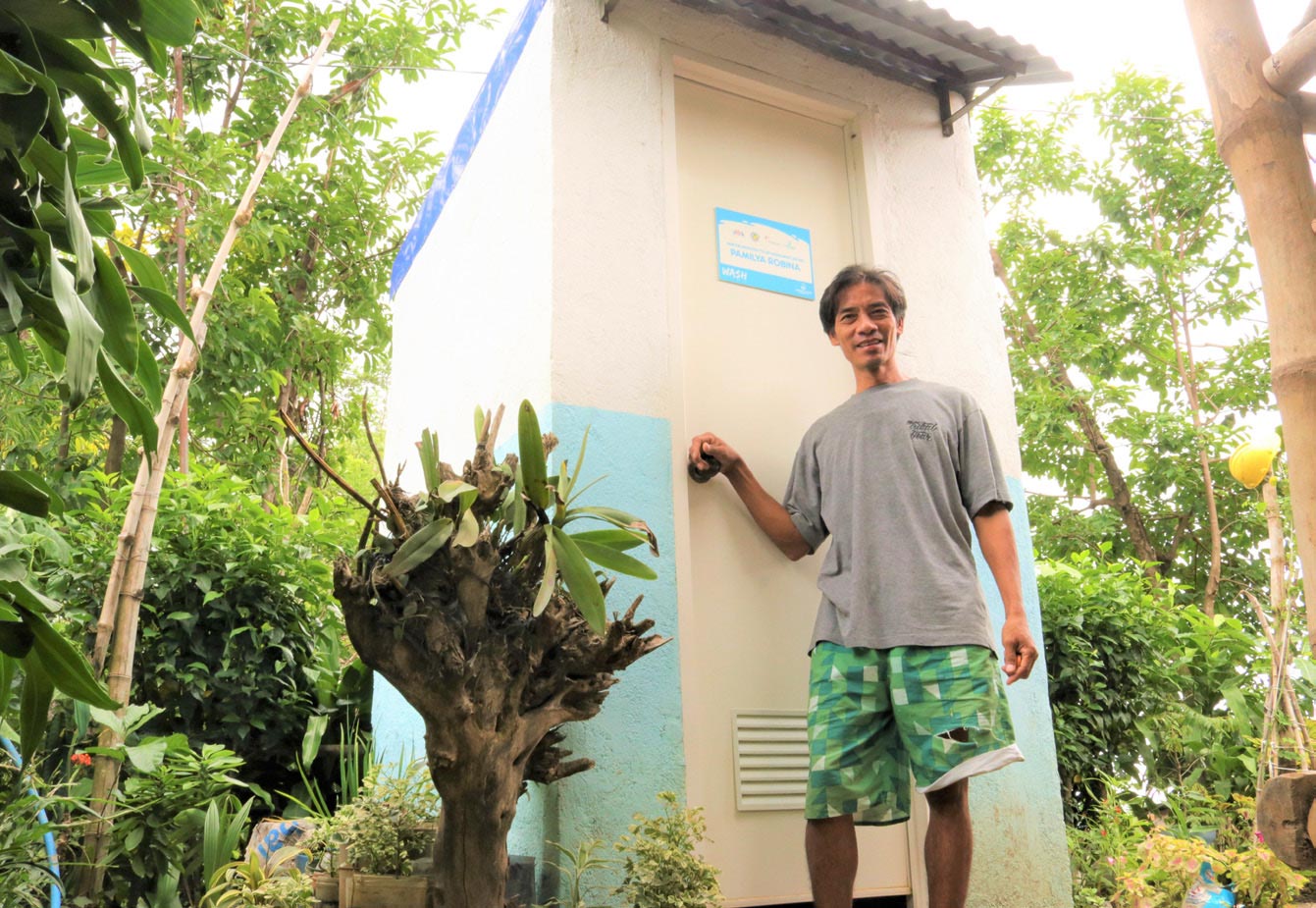
Resident of Sitio Monicayo grateful for his family's new toilet facility.
2021 Achievements of the Integrated WASH Program
Under the Integrated WASH Program, Manila Water Foundation implements a holistic intervention of services: first, Manila Water Foundation provides access to clean and potable water in selected communities; second, Manila Water Foundation designs and builds toilets for communities to eliminate open defecation; finally, Manila Water Foundation educates communities on the importance of proper hygiene practices as key to good health aligning with the first two phases.
Integrated WASH in Pilot Communities
In 2021, Manila Water Foundation formally closed out its Integrated WASH interventions in its pilot communities at Sitio Monicayo in Mabalacat City, Pampanga.
Manila Water Foundation marked the official completion of the project in the community through the turnover of the Integrated WASH Program Accomplishment Report to the Mabalacat City Health Office, Clark Water Corporation, Clark Development Corporation, and the Lanêm Nên Aeta Monicayo, the group organized solely for the operations and maintenance of the WASH facilities in the community.
As Manila Water Foundation concludes the implementation of the Integrated WASH Program in the community, the operations and maintenance of the facilities continue. The community has been equipped through technical capacity-building activities that will ensure the sustainability of water supply and sanitation access in the area.
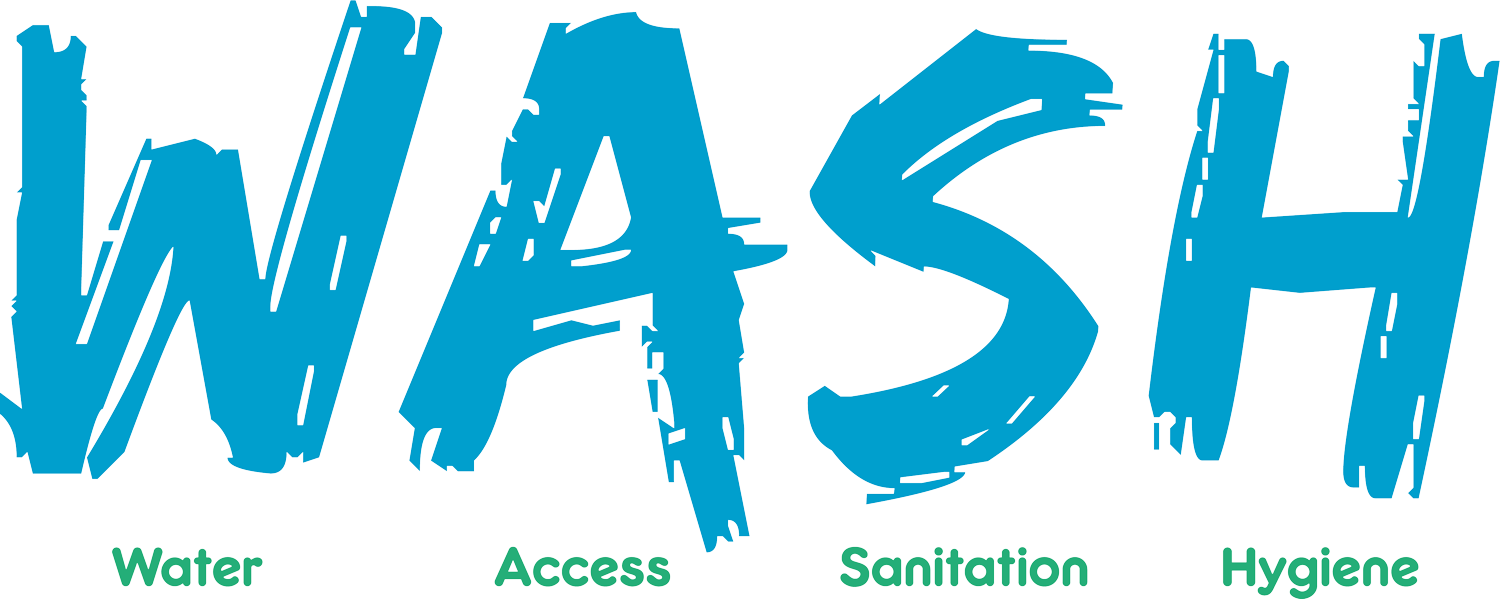
With Sitio Monicayo as the model community for WASH, Manila Water Foundation hopes to replicate its holistic and participatory approach to more communities in the country that need WASH systems the most and where there is great need.
Ipo Watershed
In July 2021, Manila Water Foundation conducted a technical and social assessment of water supply and sanitation conditions at the Ipo Watershed communities in Norzagaray, Bulacan. The area currently cradles 281 households, 80 of which are from indigenous people's families. With the Ipo Watershed Protection partners, MWF is looking into addressing the current WASH concerns of communities residing within the watersheds by improving the water systems and sanitation facilities in the area and safeguarding the water source for Metro Manila.
2021 Achievements of WASH Communities
 Ahon is an infrastructure development program of standalone water supply or sanitation system in low-income communities. Under the Ahon program are two sub-programs: Ahon Tubig, an infrastructure development program of stand-alone water supply systems in low-income communities; and Ahon Sanitasyon, an infrastructure development program of standalone sanitation facilities in lowincome communities.
Ahon is an infrastructure development program of standalone water supply or sanitation system in low-income communities. Under the Ahon program are two sub-programs: Ahon Tubig, an infrastructure development program of stand-alone water supply systems in low-income communities; and Ahon Sanitasyon, an infrastructure development program of standalone sanitation facilities in lowincome communities.
The highlight of the Ahon program in 2021 is the completion of 38 sanitation facilities for the partner households of the Roots to Shoots (RTS) program in Bombon and Pasacao, Camarines Sur. Manila Water Foundation currently leads the WASH component of RTS, a three-year multi-stakeholder, multi-sectoral initiative equally led in a consortium with Pilipinas Shell Foundation and World Vision Development Foundation. With a particular focus on the earliest stages of child development, the initiative aims to foster the right conditions for children to take root, grow, and branch out to reach their full potential.
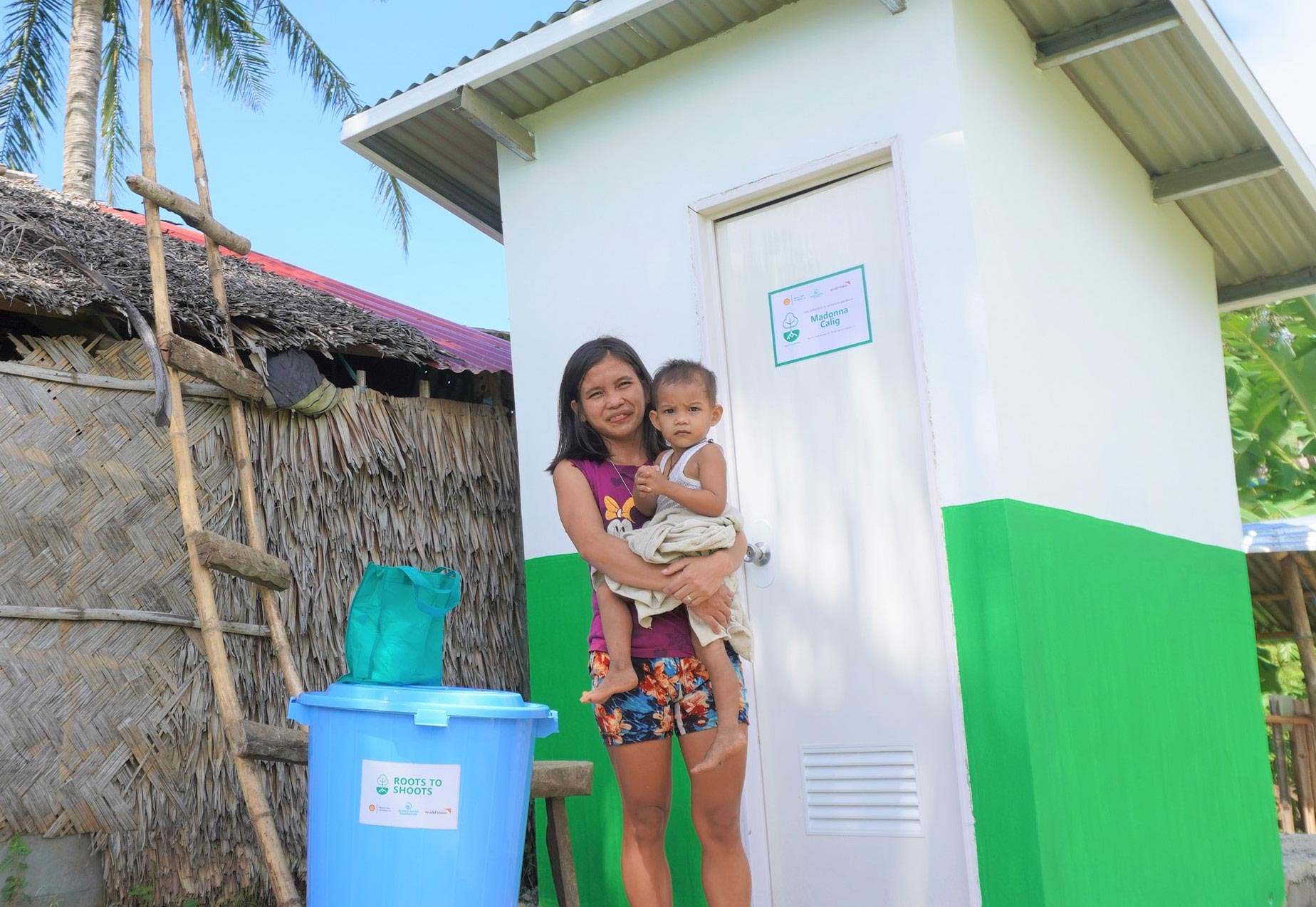
Focusing on the earliest stages of child development, the Roots to Shoots program aims to foster the right conditions for children to take root, grow, and branch out to reach their full potential.
Aside from the turnover sanitation facilities, Manila Water Foundation also spent the second year of the program to aid the rehabilitation of the Siembre Pumping Station, provide turbidity and residual chlorine meters, and capacitybuilding sessions for Bombon Water District.
Roots to Shoots: Bombon and Pasacao, Camarines Sur
38 Sanitation Facilities Built
190 individuals served
10 capacity-building sessions
13 capacity-building hours
6 capacity-building attendees
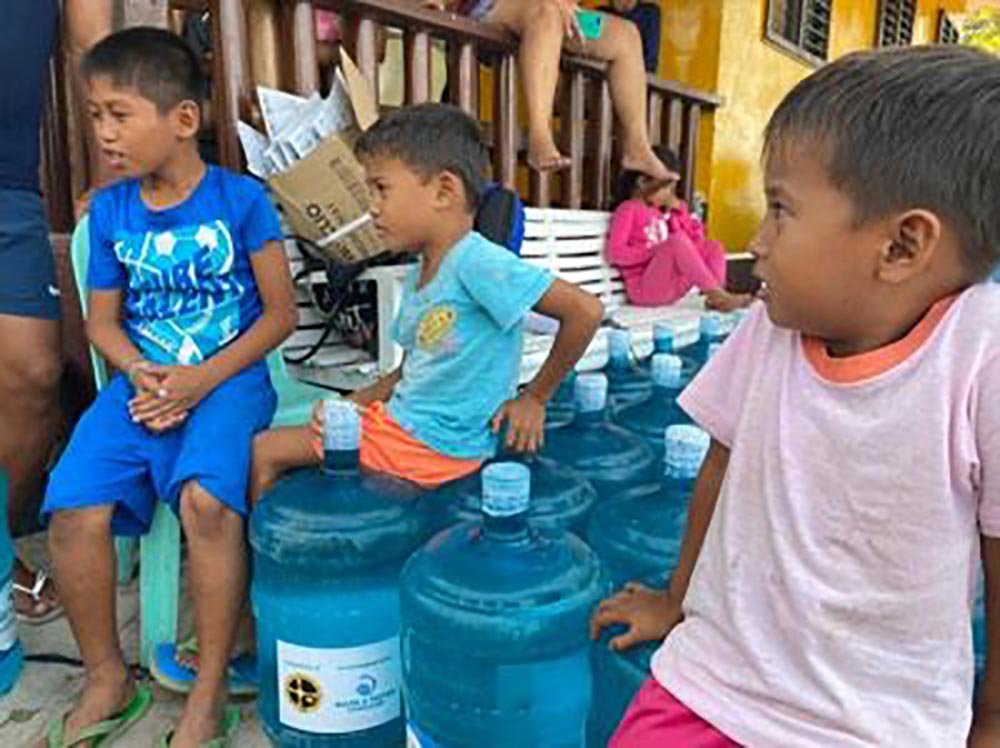
Responding to the urgent needs of communities greatly affected by Typhoon Odette, Manila Water Foundation and its partners immediately turned over much-needed drinking water and hygiene products for deployment to displaced families.
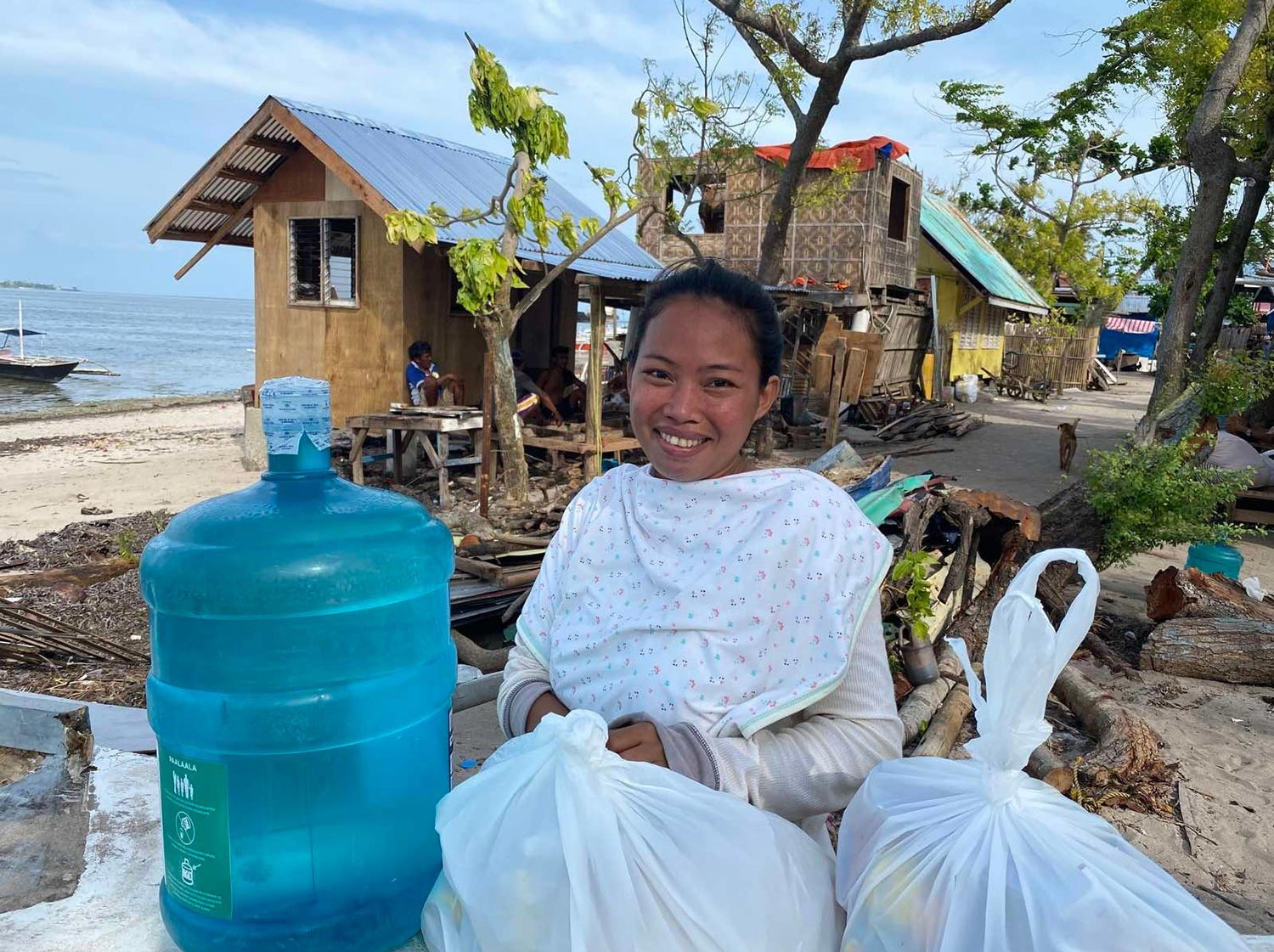
Manila Water Foundation‘s Agapay program aims to immediately address the water supply and sanitation needs of affected communities.
Agapay

193,069 individuals served

6,254 units of 5-gallon drinking water deployed

464 cases of hygiene products provided
 Agapay is the provision of water access and sanitation services to disaster-affected communities. Under Agapay are two sub-programs: Agapay Tubig, a disaster response sub-program that distributes bottled drinking water and deploys water tankers to affected families to address their needs for drinking, bathing, and other hygiene-related activities; and Agapay Sanitasyon, a disaster response program that builds sanitation facilities for affected families and individuals who were displaced from their homes and communities.
Agapay is the provision of water access and sanitation services to disaster-affected communities. Under Agapay are two sub-programs: Agapay Tubig, a disaster response sub-program that distributes bottled drinking water and deploys water tankers to affected families to address their needs for drinking, bathing, and other hygiene-related activities; and Agapay Sanitasyon, a disaster response program that builds sanitation facilities for affected families and individuals who were displaced from their homes and communities.
From the seismic activities of Taal Volcano in January, the building fire at the Philippine General Hospital in May, to Typhoons Fabian, Maring and Odette in the latter part of the year, Manila Water Foundation's Agapay program was able to respond to a myriad of emergencies.
Overall, the program was able to provide 6,254 units of 5-gallon drinking water, donate a total of P5 million, and distribute 464 hygiene products to affected 193,069 individuals.
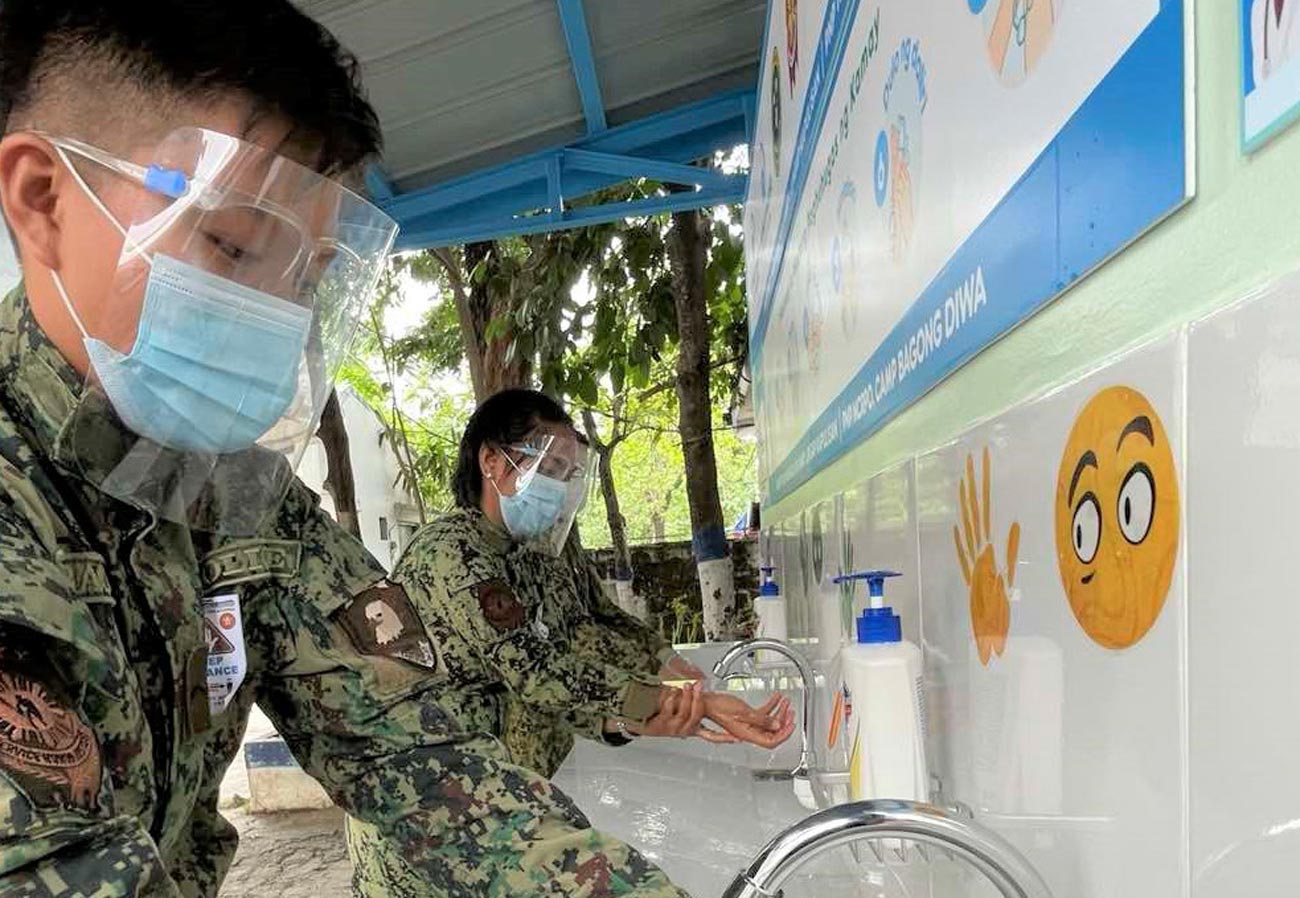
Under the Lingap Kapulisan synergy project, police personnel were not only protected against COVID-19 but were encouraged to force multipliers of the WASH advocacy.
Typhoon Odette
A major highlight of Manila Water Foundation's Agapay program is the response to Typhoon Odette. In coordination with the Philippine Army, Philippine Navy, and Philippine Coast Guard, more than 70,000 liters of drinking water and over 300 cases of P&G-donated hygiene products were transported to affected communities in Cebu, Bohol, Southern Leyte, Siargao, Dinagat Islands, and Surigao City.
“Thank you so much for reaching out to us and for helping us at this hour of great need,” Gov. Arthur Yap of Bohol Province said in a video sent to Manila Water.
Manila Water Foundation is grateful to its donors and partners for lending a helping hand to our fellow Filipinos in this difficult time: P&G Safeguard Philippines, ABS-CBN Foundation, Asociación de Alumnas de Poveda (AAP), Bloomberry Cultural Foundation, Healthy & Pure Drinking Water, Lalamove, Shopee Xpress, Manila Water and its business units Boracay Water, Cebu Water Laguna Water and Clark Water, and the local government units of Cebu, Bohol, Southern Leyte, Siargao, Dinagat Islands, and Surigao City.
2021 Achievements of WASH Institutions
MWF also reaches out to other marginalized communities through its WASH Institutions Program, namely Lingap, and Health in our Hands. These programs are for public institutions and low-income communities that have less to no capacity to install their stand-alone water supply system and need hygiene education.
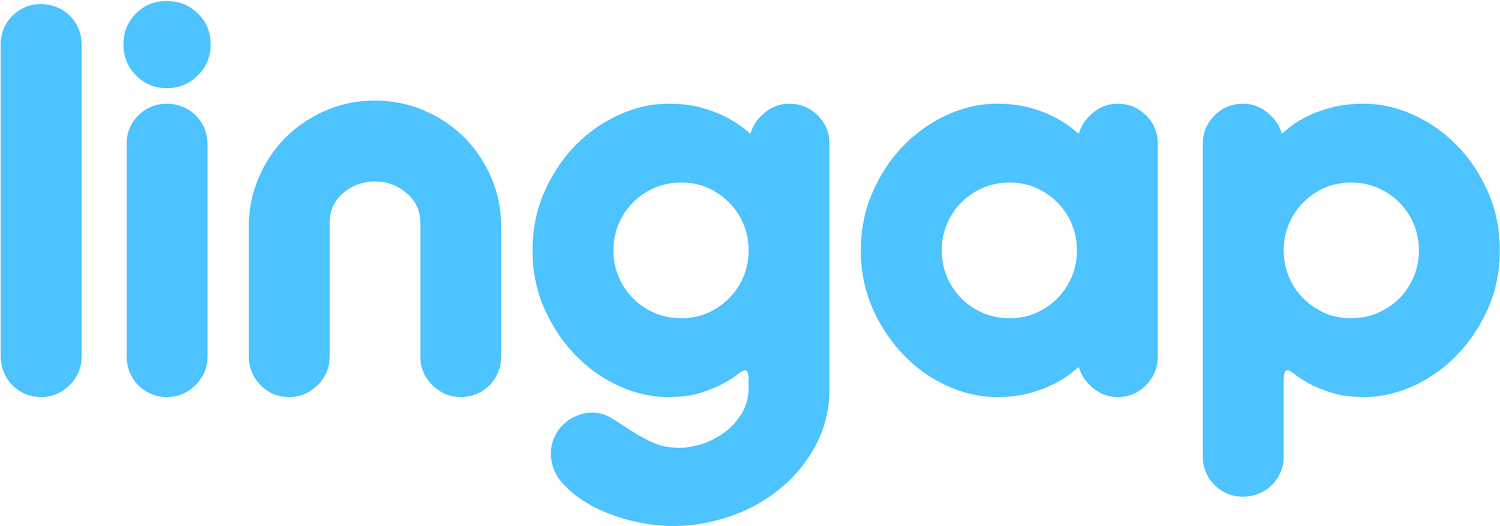 Lingap is an infrastructure development program for hygiene and drinking facilities in public institutions such as schools, city jails, military and police camps and other special centers. Recognizing the importance of hand hygiene in the fight against communicable diseases, Manila Water Foundation's partners continued to support the Lingap program. In partnership with PNP Officers' Ladies Club (OLC) and Soroptimist International Kaagapay, Manila Water Foundation led the Lingap Kapulisan initiative, constructing hygiene facilities for PNP regional offices from Region I to the Bagsamoro Autonomous Region in Muslim Mindanao (BARMM). With this partnership, police personnel were not only protected against COVID-19 but were encouraged to force multipliers of the WASH advocacy. Meanwhile, continuing its Lingap Eskwela initiatives, Manila Water Foundation was able to roll out the project implementation of SAFEWASH in Schools in partnership with P&G Safeguard Philippines to 11 schools in Jalajala, Rizal and 20 schools in Quezon City. Overall, the program was able to build 30 hygiene facilities, distribute 2,500 hygiene kits with IECs, and serve 45,756 individuals.
Lingap is an infrastructure development program for hygiene and drinking facilities in public institutions such as schools, city jails, military and police camps and other special centers. Recognizing the importance of hand hygiene in the fight against communicable diseases, Manila Water Foundation's partners continued to support the Lingap program. In partnership with PNP Officers' Ladies Club (OLC) and Soroptimist International Kaagapay, Manila Water Foundation led the Lingap Kapulisan initiative, constructing hygiene facilities for PNP regional offices from Region I to the Bagsamoro Autonomous Region in Muslim Mindanao (BARMM). With this partnership, police personnel were not only protected against COVID-19 but were encouraged to force multipliers of the WASH advocacy. Meanwhile, continuing its Lingap Eskwela initiatives, Manila Water Foundation was able to roll out the project implementation of SAFEWASH in Schools in partnership with P&G Safeguard Philippines to 11 schools in Jalajala, Rizal and 20 schools in Quezon City. Overall, the program was able to build 30 hygiene facilities, distribute 2,500 hygiene kits with IECs, and serve 45,756 individuals.

45,756 individuals served

30 hygiene facilities built

2500 hygiene kits with IECs distributed
World Oral Health Day
2,360 individuals served
1,914,247 individuals reached
Global Handwashing Day
7,700 individuals served
3,625,042 individuals reached
World Toilet Day
13,945 individuals served
3,317,481 individuals reached
Health in Our Hands:
34,447 individuals served

685 Volunteer Manhours

155 Total Volunteers

41 Activities

1,000 peak audience
 Health in Our Hands is an educational program for institutions and communities to heighten awareness of the importance of proper hygiene practices as key to healthy living.
Health in Our Hands is an educational program for institutions and communities to heighten awareness of the importance of proper hygiene practices as key to healthy living.
While typically organized with large audiences, Manila Water Foundation's global hygiene celebrations sustained the virtual format to minimize direct contact while maximizing its online resources. Manila Water Foundation utilized its social media platforms to inform, educate, and encourage its audiences, especially the youth who are learning from home. To complement the celebrations, MWF also reached out to special institutions and public spaces to distribute much-needed hygiene products that are essential in the fight against COVID-19.
 WASH Volunteerism is a pool of Manila Water enterprise talents and external partners who selflessly share their time, skills, and resources with the Foundation's initiatives.
WASH Volunteerism is a pool of Manila Water enterprise talents and external partners who selflessly share their time, skills, and resources with the Foundation's initiatives.
Harboring volunteers in the middle of the pandemic had several logistical challenges, but this did not hinder MWC's pool of talents to volunteer. Technical volunteers provided their time and expertise as design engineers of the hygiene facilities built under the WASH in Pandemic program.
Recognizing the role of volunteers amid the pandemic, Manila Water Foundation celebrated volunteerism through the appreciation of WASH Advocates and Champions. In 2021, 17 WASH Volunteers were lauded during the recognition event.
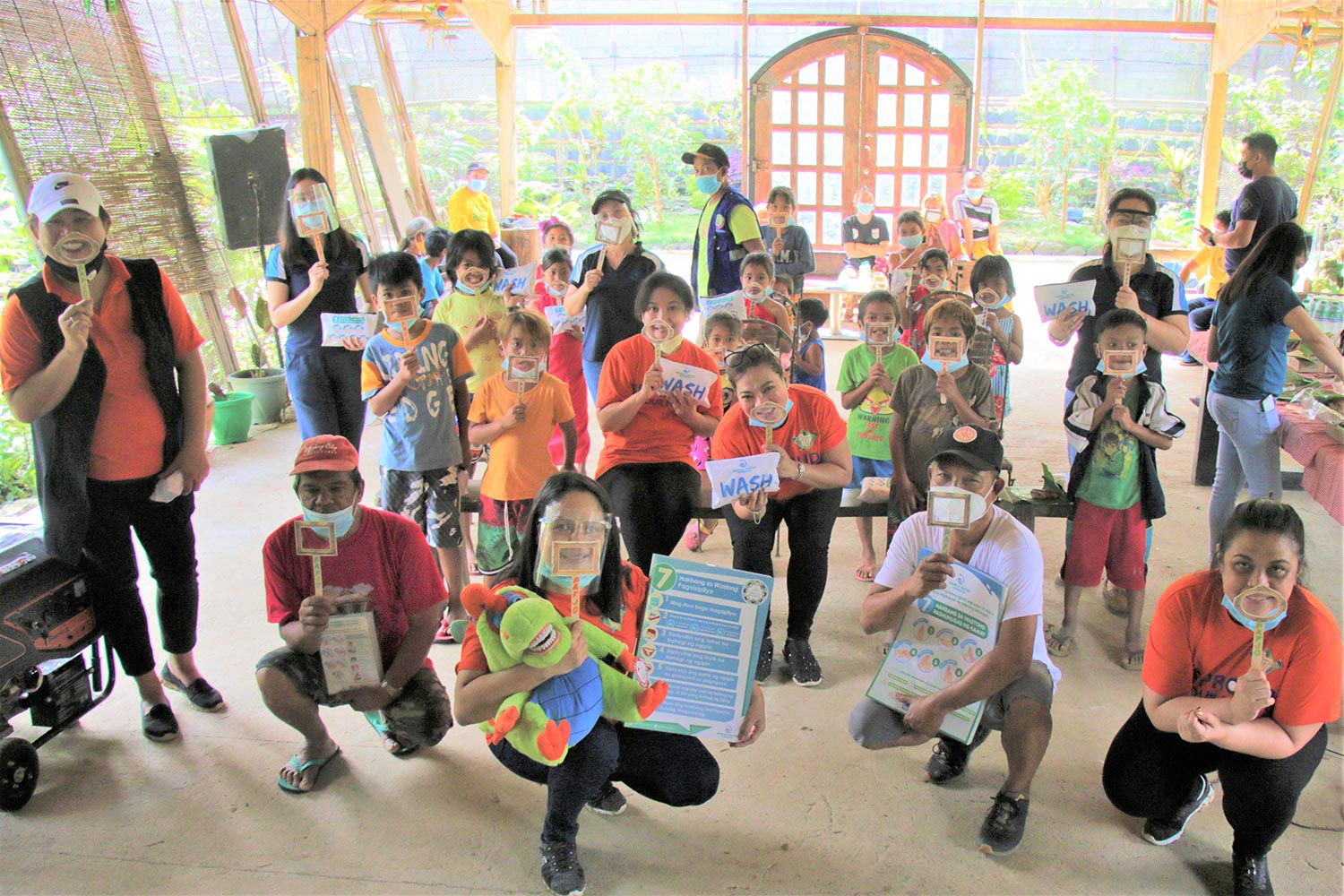
Supporting global campaigns on proper hygiene practices namely the World Oral Health Day, Global Handwashing Day, and World Toilet Day, Manila Water Foundation and its partners worked together to reach far communities, so no one is left behind.
Special Projects
In partnership with DOST-Philippines and Philippine Technological Council (PTC), Manila Water Foundation led the 2021 celebration of World Engineering Day for Sustainable Development (WEDforSusDev).
WED for SusDev is a UNESCO international day that aims to increase awareness of engineering and its impact on modern life, which is crucial in advancing the United Nation's Sustainable Development Goals (SDGs).
The event featured science and technology advocates: Dr. Marlene Kanga of the World Federation of Engineering Organizations, Secretary Fortunato dela Pena of the Department of Science and Technology, Engr. Federico Monsada of the Philippine Technological Council, Engr. Abelardo Basilio of the Manila Water Company. Speakers of the webinar include Engr. Robert Michael Baffrey of the Manila Water Company, Dr. Enrico Paringit of DOST-PCIEERD, Dr. Lydia Tansinsin of the Philippine Technological Council, Mr. Carvey Ehren Maigue of Mapua University, and Dr. Joel Joseph Marciano, Jr. of the Philippine Space Agency.
Anchored on the enterprise's business expertise in water supply and sanitation, MWF continues to align itself with the Manila Water Company's sustainability framework by helping build communities, protecting the environment, safeguarding health and safety, contributing to local and national economies, and developing our employees. Amid the pandemic and beyond, Manila Water Foundation persists to be the heart of the Manila Water enterprise—delivering the breadth and depth of its WASH programs to more underserved communities through collaborations, thereby celebrating Agos ng Pagbabayanihan.
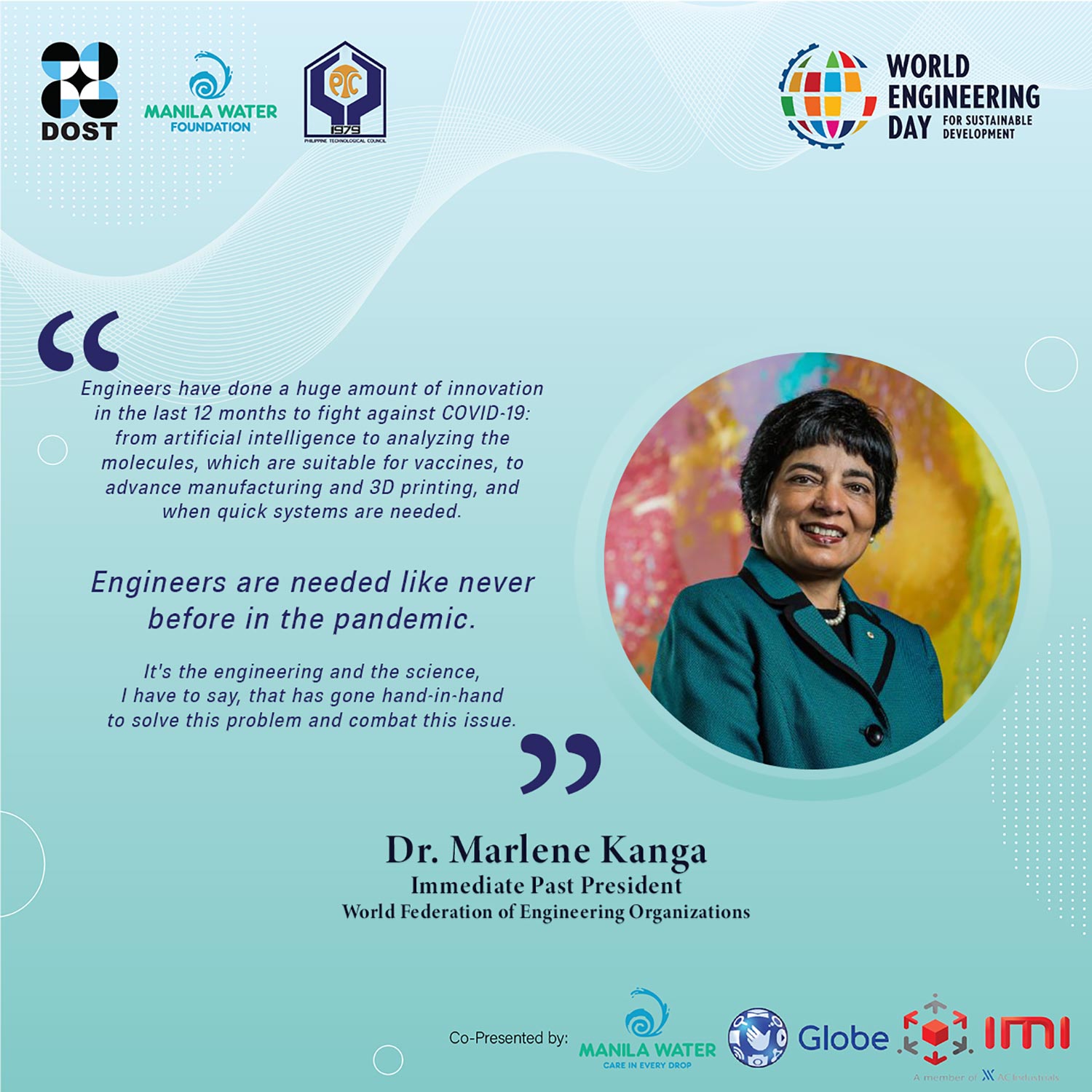
In partnership with DOST and PTC, Manila Water Foundation organized a World Engineering Day for Sustainable Development (WEDforSusDev) webinar to talk about the impact of engineering to modern life, and the role of engineers in promoting sustainable development.








